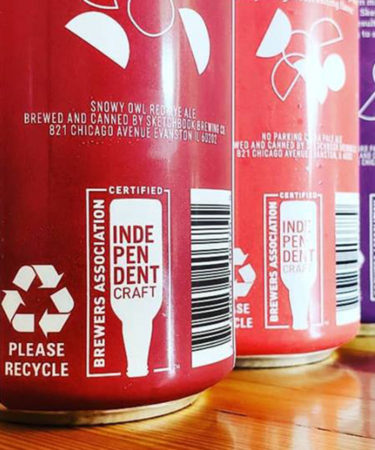It’s been 17 days since the White House and Congress entered a stalemate over the southern border wall, causing a weeks-long partial government shutdown. While this shutdown immediately affects organizations such as federal offices, airports, and national parks, it could also have a lasting effect on the alcohol industry
As VinePair reported in December, the shutdown has temporarily closed the Alcohol and Tobacco Tax and Trade Bureau (TTB), the federal office responsible for approving brewery applications and beer labels, along with those for other alcohol producers. With the TTB closed, alcohol producers seeking legal approval to sell new products across state lines, or to launch new locations, are stuck playing the waiting game.
The TTB approved more than 192,000 new labels for alcoholic beverages last year.
“The shutdown is hitting two groups: Existing breweries who are trying to get new formulas or labels, [and] breweries in planning,” Bart Watson, chief economist of the Brewers Association, writes VinePair in an email. For breweries waiting on label approvals, “the economic impact probably isn’t that huge, since they can substitute existing beers for the new ones – but consumers will feel the effects in terms of little to no innovation [or] no new beers in wider distribution.”
Breweries in planning can also be affected, depending on how long the shutdown continues. “[S]ince permits are the first step in the process, it probably won’t affect most of them unless the shutdown drags on for a few months,” Watson writes. “But for a brewery that has started paying rent [or] buying equipment, it could certainly risk jeopardizing their investment if we have a long shutdown.”
The shutdown only affects beers going into interstate commerce, Watson says, “so it won’t affect your local brewpub’s rotating IPA series.” However, he continued, “If it drags on … It would certainly restrict the ability of breweries to put new beers in the market.”
Although Watson expects the economic impact of the shutdown to be relatively low, some small businesses are already feeling its effects.
“We release new beers every other week,” Laura Dierks, CEO and co-founder of Interboro Spirits & Ales in Brooklyn, N.Y. told Business Insider. “Right now, we’re looking at not being to sell certain beer in February because of this. We’re dependent on that revenue.”
City Barrel Brewing, a brewery scheduled to open to the public in Kansas City, Mo. in February, planned to launch its business with four beers on tap. At present, only one is approved. “It’s definitely keeping me up nights,” James Stutsman of City Barrel told KMBC News, an ABC affiliate. “[I]t’s definitely going to delay at least three beers when we start which is pretty frustrating to say the least.”
At the moment, there is not much brewers, winemakers, or other alcohol producers can do.
“We’re all kind of waiting with bated breath to see when we’ll be able to apply for labeling again,” Travis Fritts, co-owner of Old Nation Brewing Company in Williamston, Mich. said.
